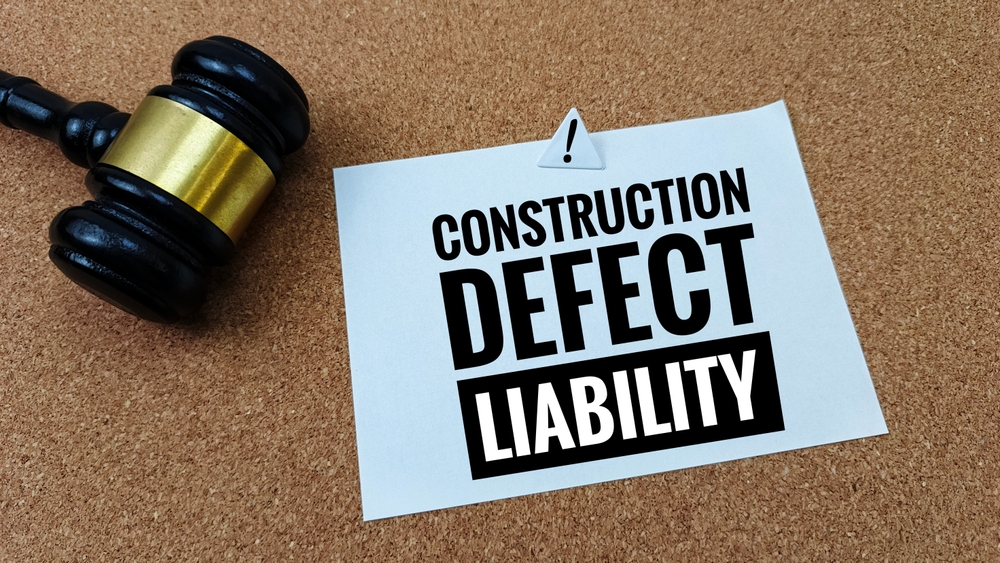

In keeping with the theme of looking back to 2022, we will be looking at last year’s court activity and reflecting on some of our attorneys’ biggest construction law lessons learned in the courtroom. Understanding construction law is a key element of successful business planning, and monitoring changes in the law is essential for construction business owners. This is important because some of the most significant lessons in industry shifts and potential trajectories can be learned there. However, we do not want you to have to wind up in the courtroom to learn them! So, for this blog, we spoke with our legal team and broke down some of the biggest takeaways from last year’s legal battles.
Nobody wants to take an issue with their construction project to the courtroom, and an arbitration clause is your best bet to avoid that. Arbitration is the most traditional form of alternative dispute resolution that involves a neutral arbitrator issuing a decision or award that is legally binding on both sides and enforceable in the courts.
There are a few reasons you want to try to resolve issues in arbitration rather than court. First and foremost, courts are backed up. If you take the issue to court, it could be more than a year before you see any real movement in your case, and it could be even longer before any resolution takes place. If you resolve the issue in arbitration, it is far more likely that your case will be handled in less than a year, saving you time.
Additionally, even though you must pay more to file upfront, you end up saving a great deal of money by avoiding all the fights regarding new evidence, what you are and are not entitled to see, and other such issues. So, not only is arbitration in your best interest timewise, but it protects your pocketbook, too! If you are in the construction industry, arbitration is the better place to be.
At The Cromeens Law Firm, we have extensive knowledge and understanding of construction contract laws and are licensed in Texas, Georgia, and California. We are often able to solve contract disputes for our clients through informal negotiations, mediation, or arbitration. Work with us to equip yourself with the ability to properly evaluate your risks before you sign and negotiate your next subcontract with greater confidence and ease.
One of the biggest construction law lessons learned in the courtroom we have seen is taking folks to court over material costs! If you have been in the industry for a minute, it’s no surprise to learn that material costs have been extremely volatile over the last three years. Many litigations over the past year have been rooted in this problematic trend because folks have been entering into contracts that do not account for increasing material costs. For example, we had a client who was a sub and had signed contracts to do roofing work, but material costs skyrocketed so high that he did not do the work and bailed on the project.
In response, the general contractor sued him for the $100K it cost them to do his work. All of this could have been avoided had he taken precautions in his contract and inserted a clause to either protect against uncontrollable circumstances or require a reassessment of material costs 30 days after his initial estimate. Monitor and manage your material costs, or you could find yourself in a similar situation.
One promising construction law lesson learned in the courtroom last year is that the industry is trending toward an increase in contractual fairness, especially in subcontracts. Because there is a labor shortage right now, habits are changing in favor of contract negotiation, or altogether eliminating some of the most problematic clauses in construction subcontracts. Because of this, we encourage subs to know their worth and put it to paper. Have your contracts reviewed, negotiate them as needed, and always charge what you are worth. Developing clear processes, as our podcast recap mentioned, and managing expectations via your contract is essential for subcontractors to become and continue to stay protected!
The construction industry is always changing, and we see those shifts firsthand in construction law. Some of the best lessons we can learn about how the industry is developing and what is trending can be found in the courtroom, but you should not have to end up there to find them out! Take note of these key insights and keep them on hand for your construction company. Doing this will give you tools to utilize next time you are faced with similar issues, which will make it a lot easier to navigate these conflicts in the future.
Knowing how to protect yourself best is essential, especially when growing your business, and having a team to support you when you’re facing the potential of getting sued is a huge advantage. The Cromeens Law Firm team is here to help keep you out of the courtroom on the front end or help you win the fight inside of it. Contact us today and set yourself up for success with the support of a legal team.
This article is intended as a general educational overview of the subject matter and is not intended to be a comprehensive survey of recent jurisprudence, nor a substitute for legal advice for a specific legal matter. If you have a legal issue, please consult an attorney.
Karalynn Cromeens is the Owner and Managing Partner of The Cromeens Law Firm, PLLC, with over 17 years of experience in construction, real estate, and business law. A published author and passionate advocate for contractors, she has dedicated her career to protecting the businesses her clients have built. Karalynn is on a mission to educate subcontractors on their legal rights, which inspired her books Quit Getting Screwed and Quit Getting Stiffed, as well as her podcast and The Subcontractor Institute.

